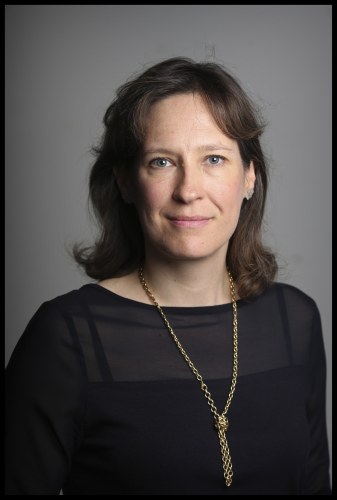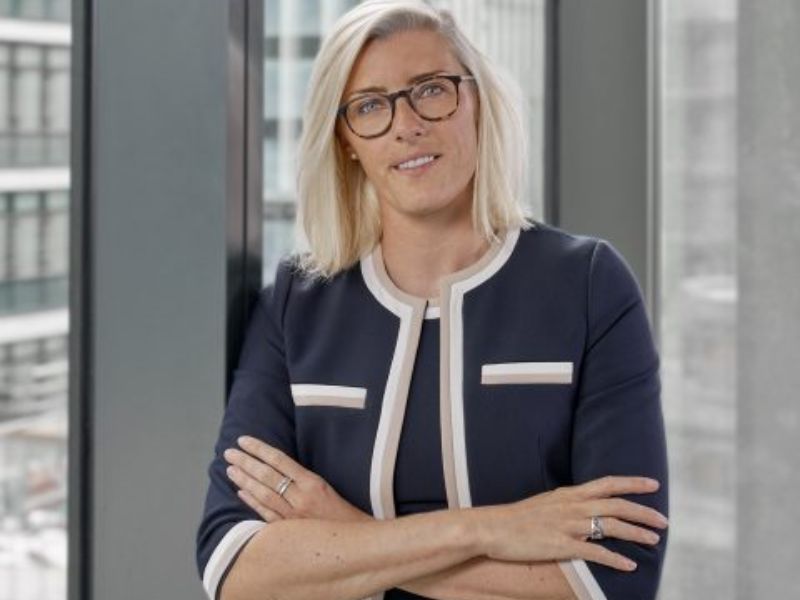 Carola Hoyos produces the FT’s podcast called Irreverent Questions with Mrs Moneypenny, and is Editor of FT Executive Appointments and publish FT Women in Business and FT Executive Diversity, among other reports. She is also consulting editor for the FT’s Non Executive Directors Club.
Carola Hoyos produces the FT’s podcast called Irreverent Questions with Mrs Moneypenny, and is Editor of FT Executive Appointments and publish FT Women in Business and FT Executive Diversity, among other reports. She is also consulting editor for the FT’s Non Executive Directors Club.
Tell us a bit about yourself, background and your current role.
I have been with the FT for most of my working life. I started as its United Nations correspondent in New York and covered the aftermath of the 9/11 terrorist attacks and the diplomatic run-up to the Iraq war. Once US fighter jets crossed into Iraqi airspace, I was sent to London to cover the geopolitics of oil – we were worried that Saddam Hussein would torch his oil wells in retreat and that global prices would go through the roof. I spent a happy decade talking to oil sheikhs, Texan wildcatters and Russian oligarchs while covering the geopolitics of oil and the world’s biggest energy companies. I then moved to the defence beat, which gave me the chance to fly a fighter jet but mainly involved desk-bound stories about how defence companies were dealing with budget cuts.
I now edit the FT’s Executive Appointments section and about nine reports a year, including the annual Executive Diversity report and its ranking of leading LGBT executives. This year, Peres Kagbala and I launched the FT’s first report on ethnic diversity. At the moment my headspace is occupied by women as I am in the process of editing September’s Women in Business report and helping to plan the FT’s Women at the Top summit.
Did you ever sit down and plan your career?
I am a planner, I must admit. In my final year of university I decided that jobs offer three things – influence, an interesting experience and money – and that I’d be lucky to get two. I focused on influence and experience. I wanted to meet interesting people, travel and influence international relations and was lucky enough to be debt free and quite happy to live in a shoe box. And I wanted to achieve these things by 30 – it’s why I chose journalism over the academia, diplomacy, banking or law. As ambitious as I was, I knew I wanted a family too. So, yes, I planned and worked hard, but I was also very lucky. Too few people are willing to admit what most academics will tell you – the difference between success and failure is often measured by luck (all those other things we are far happier to acknowledge – grit, hard work, talent etc – also matter, but less than we like to admit).
Have you faced any challenges along the way and if so, how did you deal with them?
I faced #firstworldproblems. Would I have been more successful in my career had I not been a woman or had children, possibly. Do I want to level the playing field in general, yes. By increasing thought diversity at the top of companies and society, we improve the odds of avoiding crises big and small – and that benefits everyone.
On a typical workday, how does you start your day and how does it end?
My workday starts by answering emails and ends by answering emails. In between I commission stories and edit them. I read lots of different sources and talk to people with views I find interesting. I generally only sit still when I edit and chances are you won’t find me – I find a quiet, undisturbed spot especially when I am sub-editing and fact checking. Otherwise, I tend not to sit still. When I commission I walk around the newsroom or talk on the phone and then follow up by email. And to generate new ideas I get out of my physical and intellectual comfort zones as much as possible. Yesterday, for example, I though my head would explode reading a rather technical piece on blockchain and accounting. I waded through and had a couple of conversations (one of the best things about working at the FT is the ability to access smart people inside and outside the organisation). I’m pretty sure I am about to commission a piece that will make the topic accessible – and dare I say fun – to regular readers without boring the experts.
Tell us a bit about your role and how did that come about
I didn’t get the job I wanted and knew I needed a change. When I saw the internal advertisement for this job, I thought it would either be the best or the worst move I ever made. The worst, because – after 15 years – it would take me out of the newsroom and the heart of the FT; the best, because it would essentially allow me to become an intrepreneur and grapple with the big question in journalism – how to make money out of it without losing integrity. It proved to be the latter.
Have you ever had a mentor or a sponsor or anyone who has helped you in your career?
Not an official one. I have someone who has shown a great deal of loyalty and has sponsored me. But it has been very informal, which comes with benefits and drawbacks.
If you could change one thing for women in the workplace, what would it be?
If I could change one thing for women in the workplace, I would pay women at the bottom of the pay scale enough to allow them to work and look after their family.
If you were to look back in five years, what would you see in terms of your achievements?
Launching new FT products and bringing inclusion issues to the attention of readers and board chairmen who then went out and made changes that benefited their companies. It says a lot about the power of the FT and its readers.
Tell us about your plans for the future
My plan is to publish data and transparency around inclusion – you can’t achieve what you can’t measure. As a journalist, I want to be able to distinguish the companies giving lip service to the issue and those actually improving matters.
You can listen to Mrs Moneypenny’s podcast on Acast.








